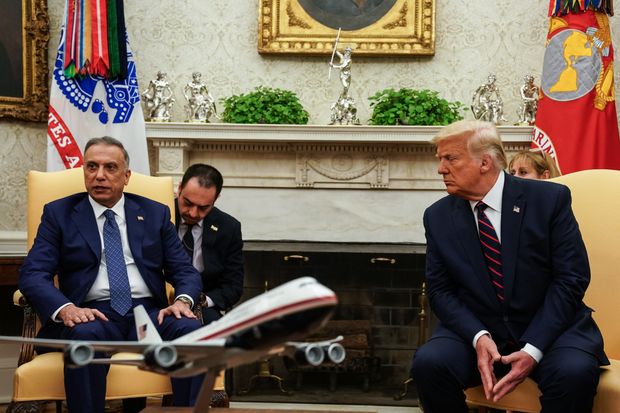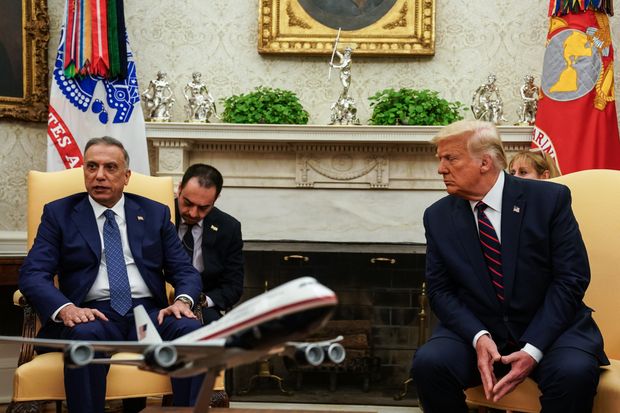- Iraq is considering an energy reconciliation with Saudi Arabia as Baghdad seeks to lower its reliance on Iran for gas and electricity
- The potential deal would see Iraq link up its power grid to Saudi Arabia and other Gulf states, marking a major turning point in the longstanding feud between the nations
- The United States has backed the deal, urging Iraq’s Finance Minister to proceed with the potential deal
- Iraq has been facing an energy crisis recently, with power cuts in some places lasting up to 20 hours at a time
- Last month, protestors took to the streets to demand a short-term solution to the power crisis
- Summer days in Iraq can reach temperatures of up to 50 degrees celsius
Iraq is considering an energy reconciliation with Saudi Arabia as Baghdad seeks to lower its reliance on Iran for gas and electricity.
Under a U.S.-backed deal, Iraq could connect its power grid to Saudi Arabia and other Gulf states, which would mark a major turning point in the longstanding feud between the two nations.
Since the 1991 Persian Gulf War, there has been some bad blood between Iraq and Saudi Arabia.
However, on Friday, Iraqi Finance Minister and Deputy Prime Minister Ali Allawi met with U.S. Treasury Secretary Steven Mnuchin, where the U.S. government urged Baghdad to proceed with the potential Saudi energy deal.
At the same time, Iraq signed around $8 billion worth of energy deals with U.S. companies.
Minister Allawi said the Saudi deal is on the verge of being defined and put out to tenders.
As such, he said he expects Iraq’s dependence on Iranian gas and electricity imports to being to trail down “significantly” next year.
Why the energy reform?
Iraq has been in an energy crisis as COVID-19 keeps energy prices low and workers indoors.
The company’s financial difficulties make investment into its dated energy infrastructure tough, and as a result, Iraq has been dependent on Iranian imports for some time.
Power cuts across the country, which in some places last for 20 hours a day, have been causing protests in Iraq — especially during summers months, where heat can get stifling.
Last June, Iraq’s summer averaged a whopping 48 degrees celsius per day. Now, in the era of COVID-19, citizens are stuck between a rock and a hard place: do they stay quarantined at home in the sweltering heat with no electricity to power an air conditioner, or do they go outside and brave the virus?
Protests erupted afresh last month as Iraqi took to the streets to fight against corruption, unemployment, and poor public services. Part of the protests were calls for short-term solutions to the electricity shortage until the cooler winter months arrive.
Nevertheless, while Minister Allawi expects the country’s power situation to improve next year, he said that until then, the country has no real choice but to keep drawing on Iran for its power.







